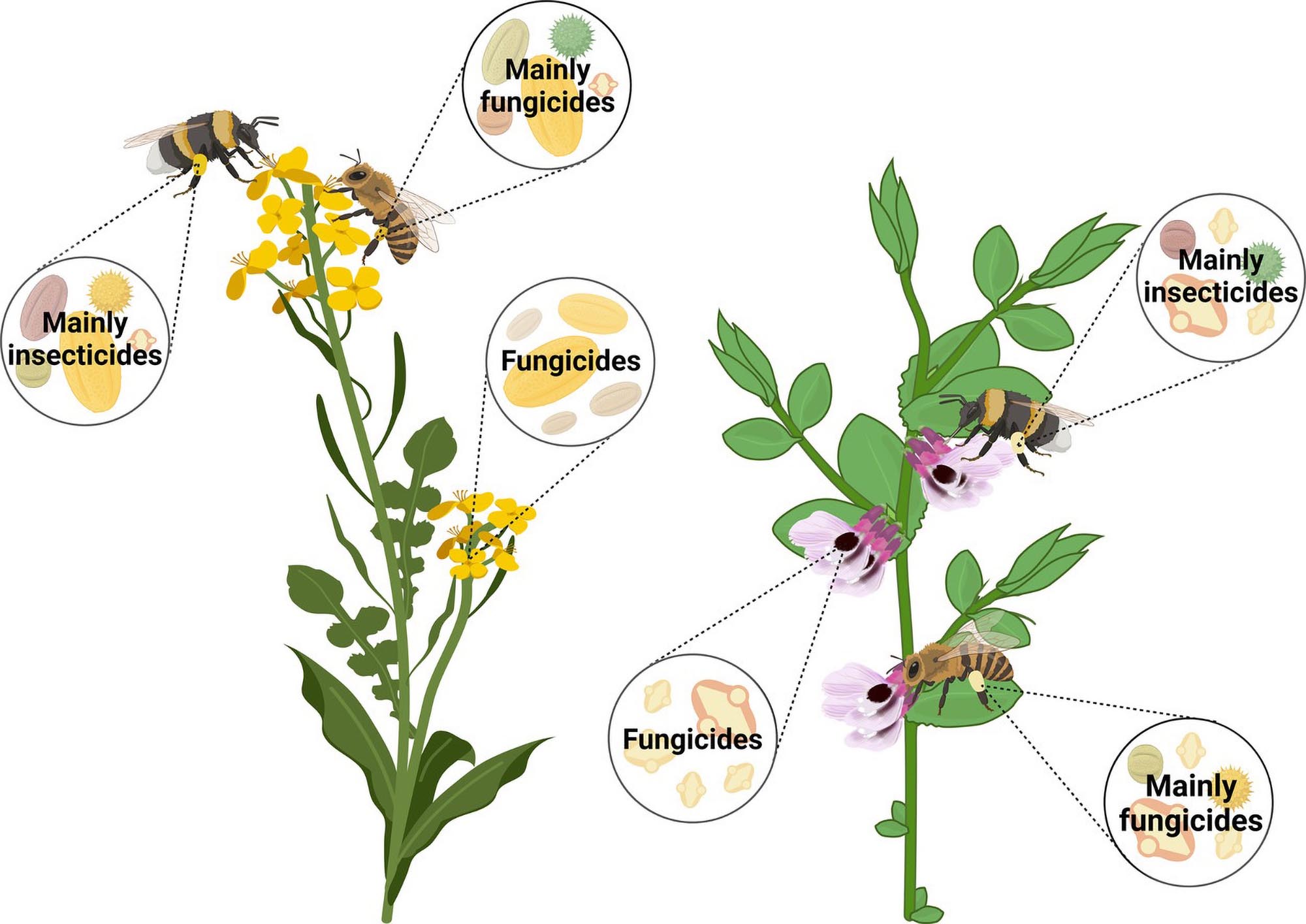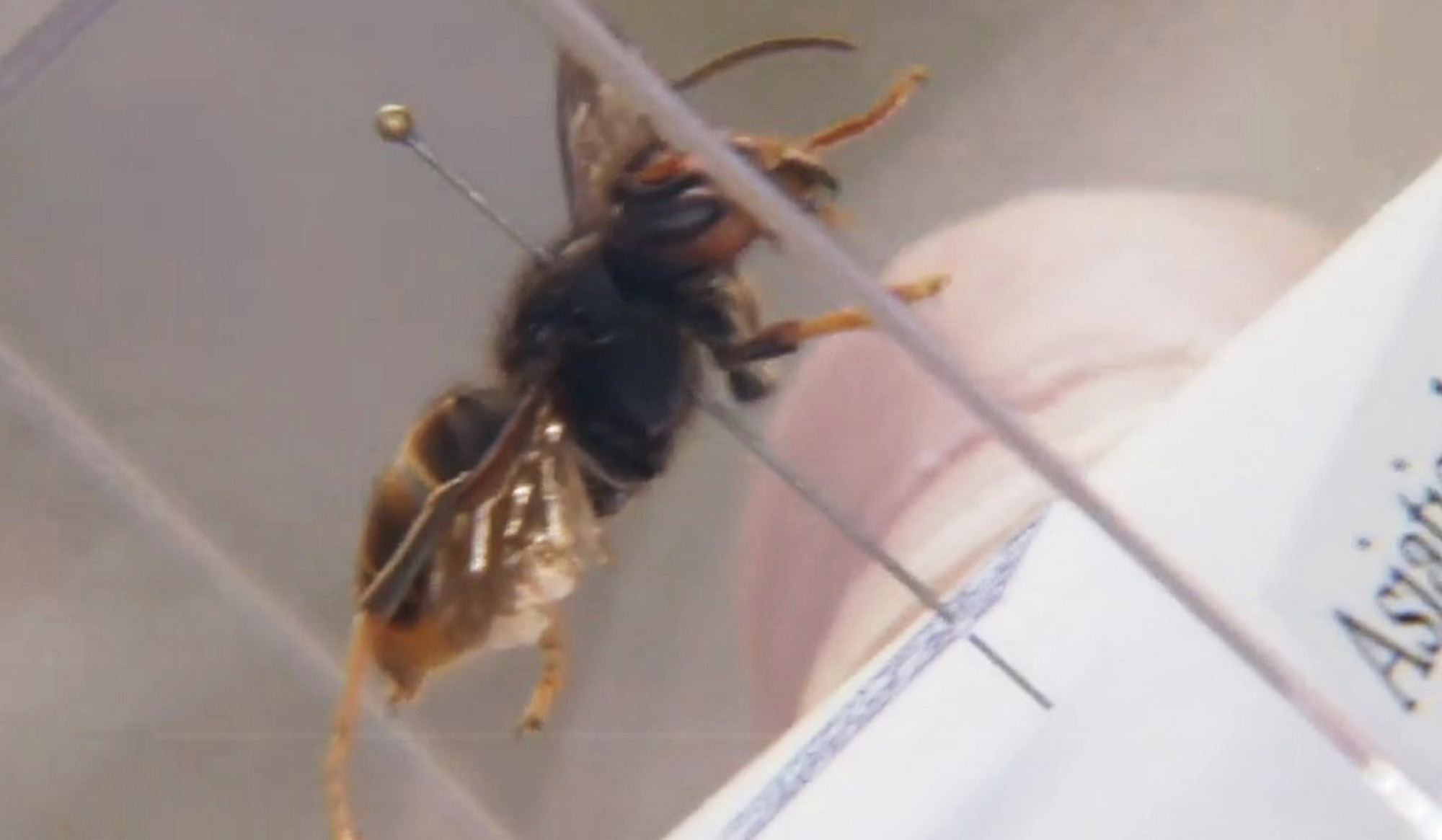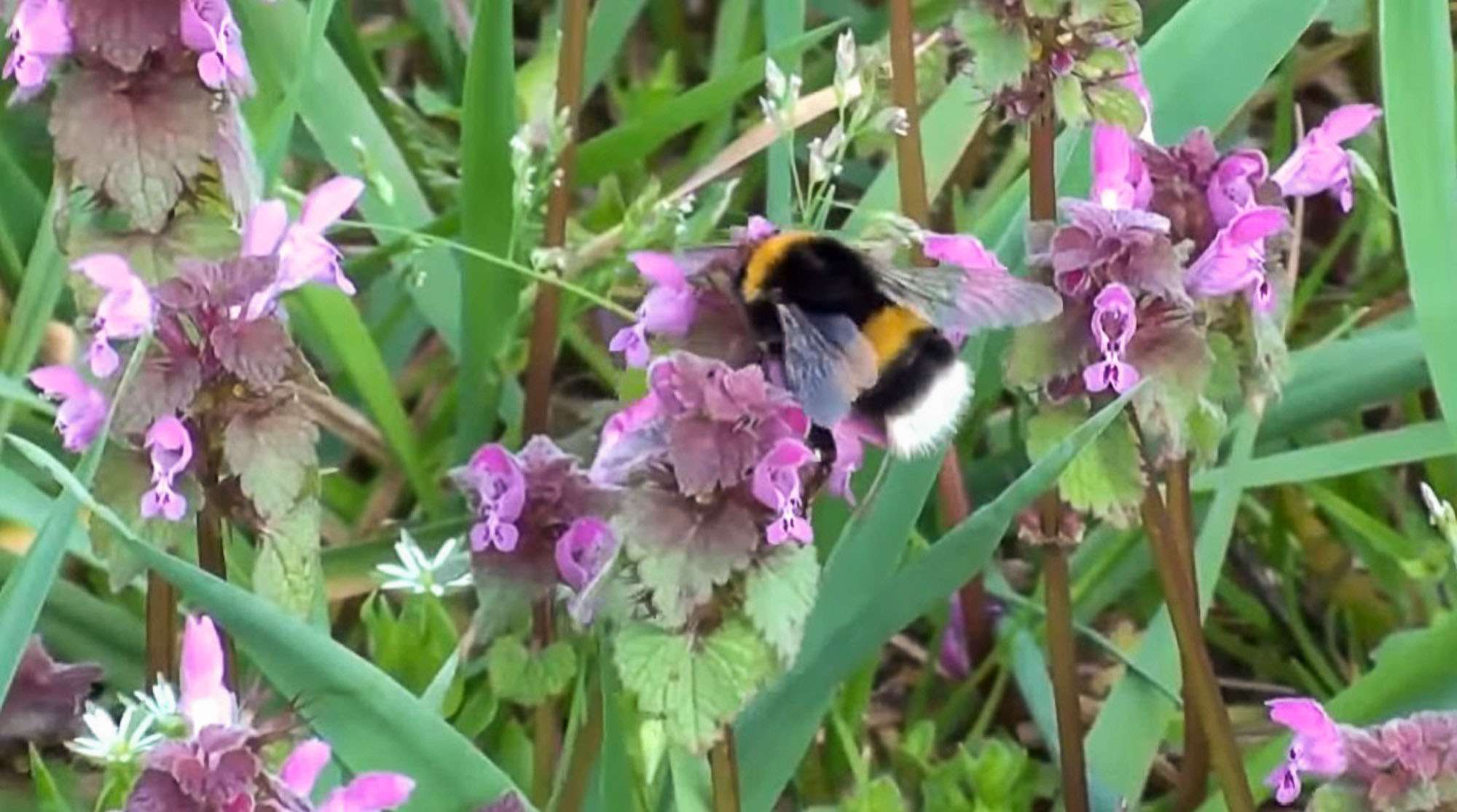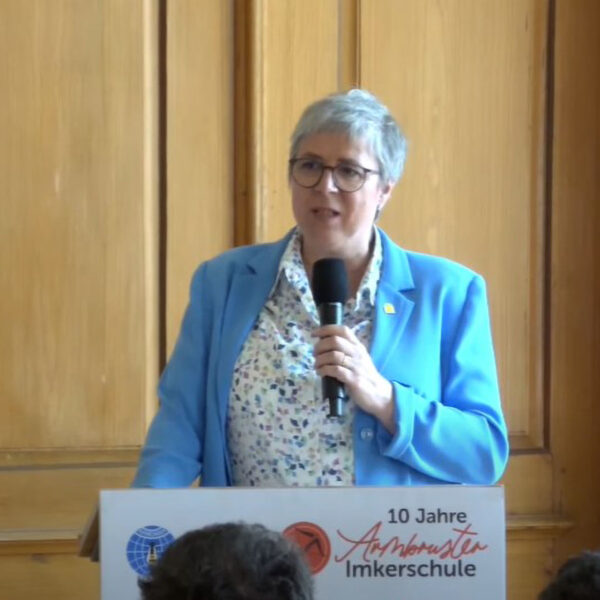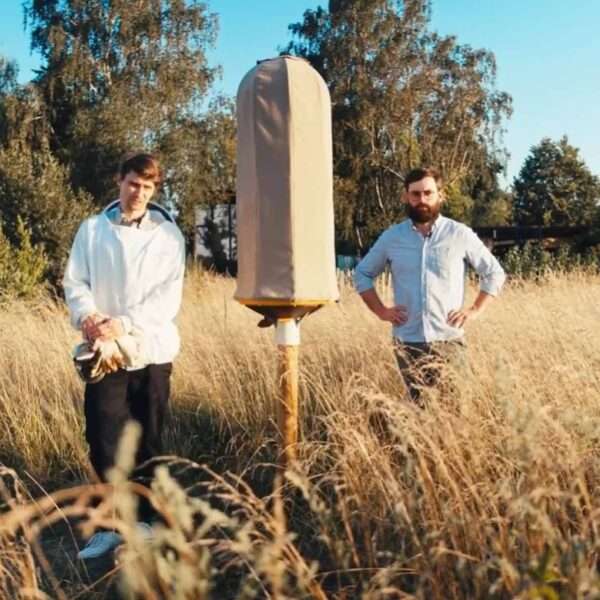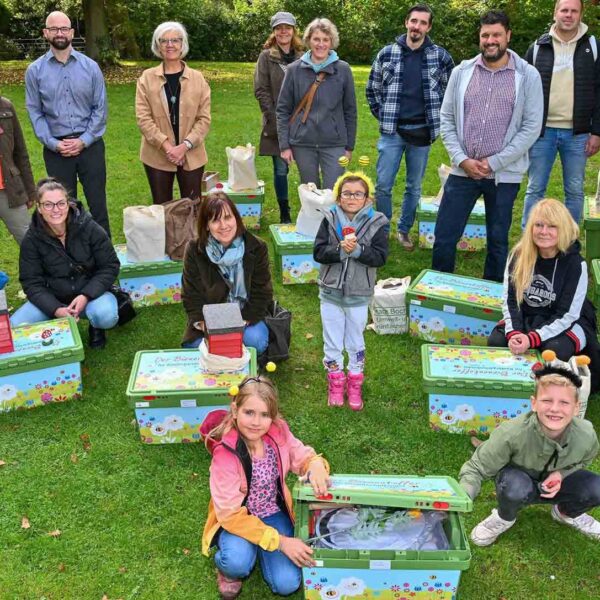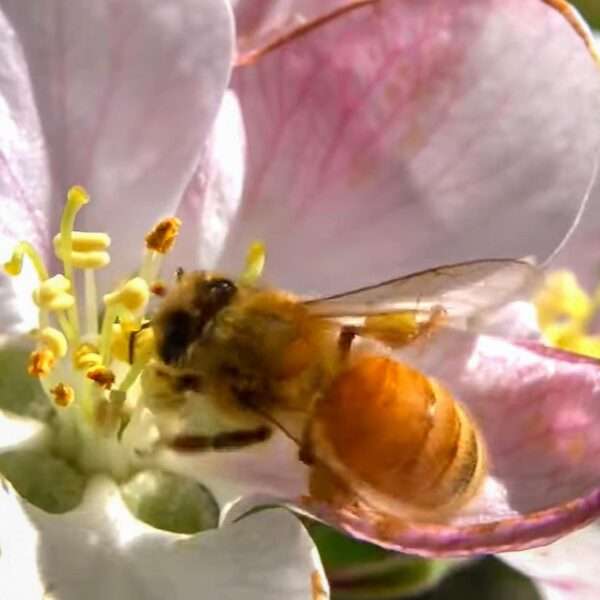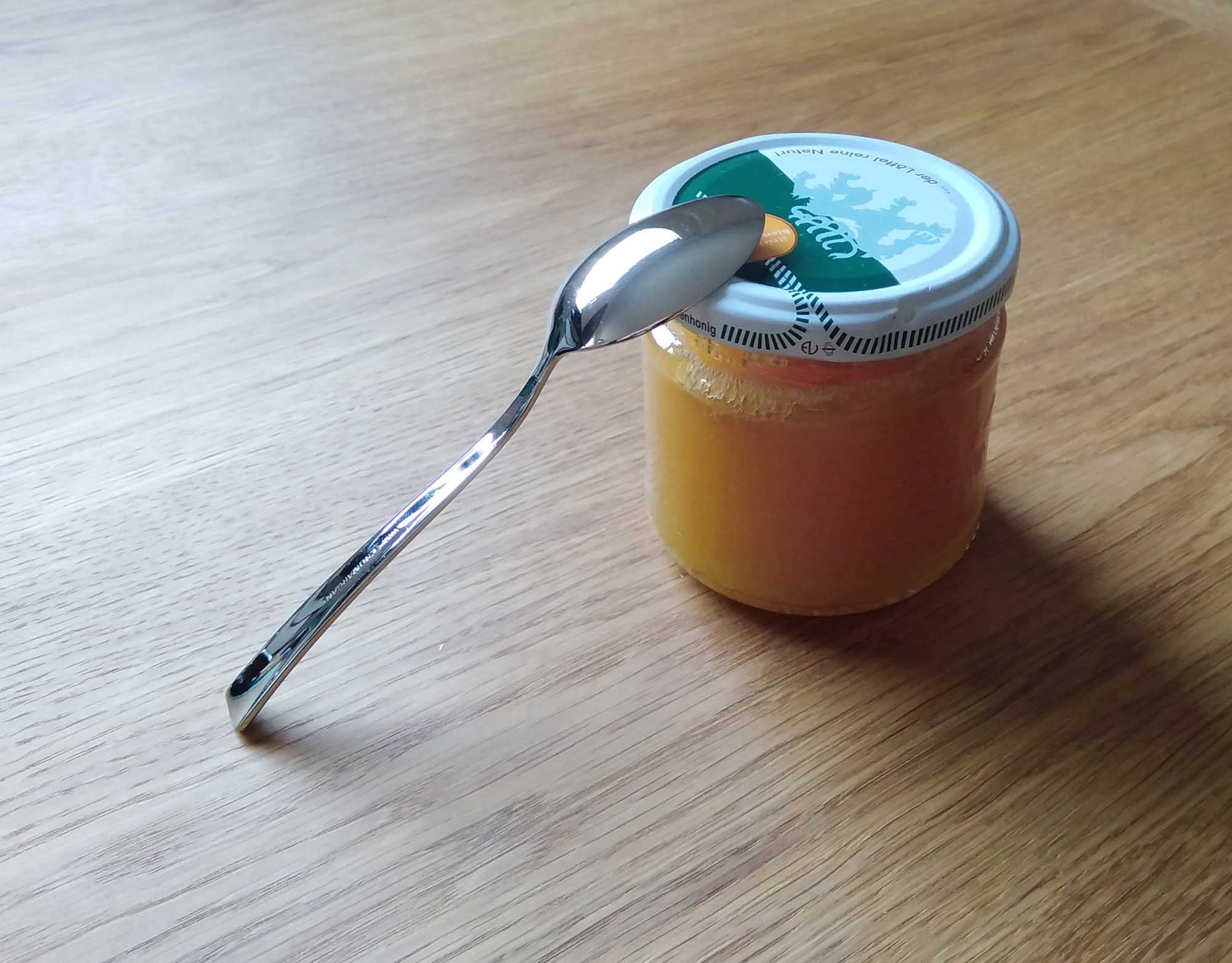Pollen gathered by bees in Ireland contains a banned insecticide, studies have shown.
Researchers from Trinity College Dublin and Dublin City University examined pollen collected by bumblebees and honeybees.
They found that the pollen samples taken from honeybees and different types of bumblebees were contaminated with fungicides and neonicotinoid insecticides. The latter is a group of chemicals that was banned from being applied in the European Union (EU) last year.
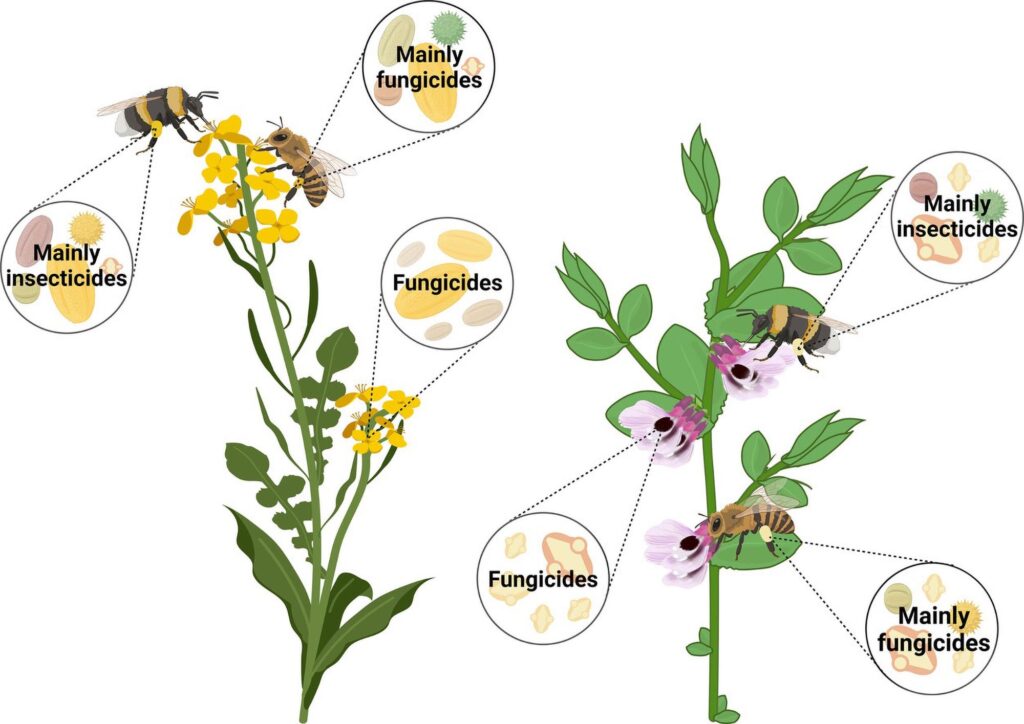
The scientists said their results would suggest that some chemicals persist in the soil for a long time since most of the detected pesticides had not been applied in the past years to the fields at the 12 sites where their evaluation took place.
Elena Zioga from Trinity College Dublin’s School of Natural Sciences called the results “concerning on several levels.”
Elena, who is the study’s first author, explained: “It is very worrying that the five neonicotinoids we looked for appeared in bumblebee pollen and not in crop pollen.
“Some of these pesticides, known to be particularly toxic, had not been applied in the fields we sampled for at least three years. This shows either that they persist for a long time in the field edges, where wildflowers grow, or that bees collected neonicotinoid-contaminated pollen from beyond the sampled fields.”
Neonicotinoids are a highly disputed group of chemical substances. Numerous scientific studies have shown that their application has a devastating effect on the nervous system of insects.
Last year, the European Commission (EC) said the neonicotinoids clothianidin and thiamethoxam must not be used anywhere in the EU as of 2023. Ireland is a member of the EU.
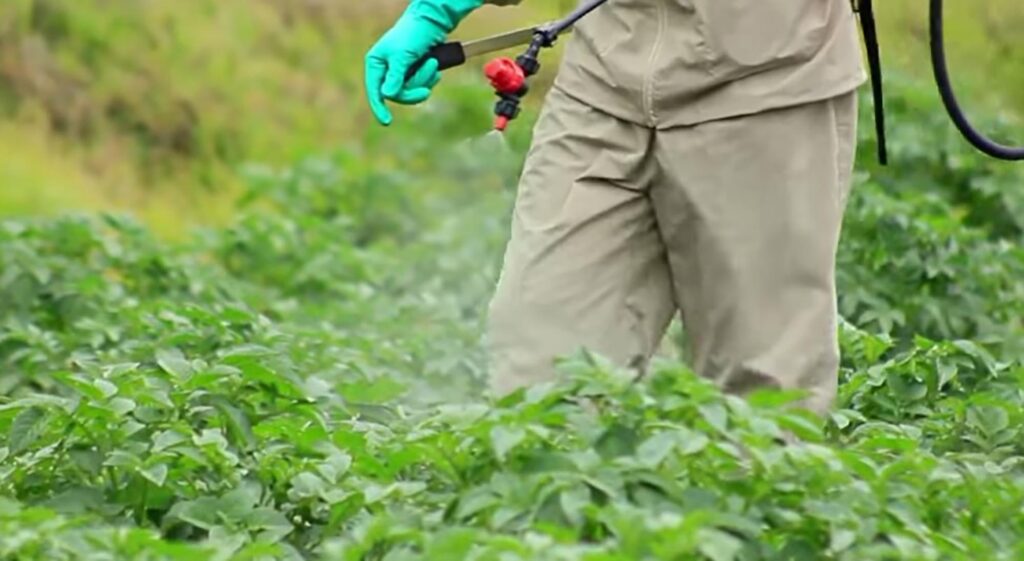
The researchers at the institutions in Dublin confirmed that both banned substances had been among the five neonicotinoid agents that were detected in the pollen they examined.
Already in 2018, EC experts prohibited any outdoor application of neonicotinoids to protect biodiversity.
The expanded EU-wide restriction means that there must not be any traceable residue of clothianidin and thiamethoxam in any foodstuff produced within the EU as of 2023. The regulation also affects imported products and all kinds of animal nutrition.

